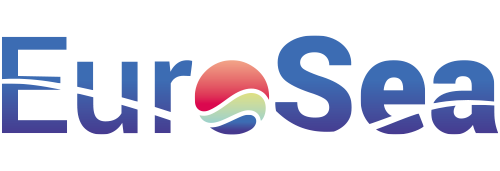
Description
Autonomous Surface Vehicles (ASVs) are pivotal in marine research and observation, offering remote and precise data collection capabilities. This initiative focuses on uniting ASV operators under a cohesive network, creating a streamlined data integration system, and benchmarking a set of best practices for efficient ASV operations.
Impact During the Project
Unified Network of ASV Operators:
Traditional State: ASV operators might have functioned independently, leading to potential data inconsistencies and reduced collaboration.
Advancement: The creation of a network of ASV operators fosters collaboration, promotes data consistency, and facilitates shared learning and resource optimization.
Streamlined Data Integration:
Traditional State: Data collected by different ASVs might have been stored and processed in isolated systems, causing potential delays or gaps in comprehensive marine data analysis.
Advancement: By integrating data from various ASVs into a unified system, there’s a seamless flow of information, ensuring comprehensive, up-to-date marine insights.
Standardized Best Practices:
Traditional State: Operational methodologies between different ASV operators could vary, leading to potential discrepancies in data quality or collection techniques.
Advancement: With a set framework for best practices, ASV operators can align their methodologies, ensuring consistent data quality and operational efficiency.
ASVs Poised for Operational Excellence:
Traditional State: Without standardized best practices, some ASVs might not have been optimized for peak performance.
Advancement: Reaching a Technology Readiness Level (TRL) of 6 indicates that ASVs have been methodically tested in relevant environments and are close to full operational deployment.
Impact Post Project
Boosted Marine Data Collection:
Traditional State: Limited coordination between ASV operators might have hindered the holistic understanding of marine environments.
Advancement: The united network of ASV operators, along with an integrated data system, allows for a more comprehensive and coordinated approach to marine data collection.
Cultivating a Culture of Shared Learning:
Traditional State: Best practices might have been confined to specific operators or regions.
Advancement: The consolidated framework for best practices acts as a knowledge bank, allowing ASV operators to continuously learn, innovate, and upgrade their operations.
Advancement over and above State of the Art
The marine observation domain stands to benefit immensely from the harmonization of ASV operations. By congregating ASV operators under a common umbrella and integrating data flows, the initiative ensures marine data is both comprehensive and consistent. Standardizing best practices guarantees that ASVs operate efficiently and deliver high-quality data. This holistic approach amplifies the capabilities of marine observations, promoting excellence, innovation, and shared learning, which are fundamental in keeping up with the evolving challenges and intricacies of marine environments.
Links and References
Link to D3.5 – ASV Network structure and roadmap: https://eurosea.eu/download/eurosea_d3-5_asv-network_structure_and_roadmap_revised_resubmitted/?wpdmdl=5528&refresh=650197c5df6151694603205
